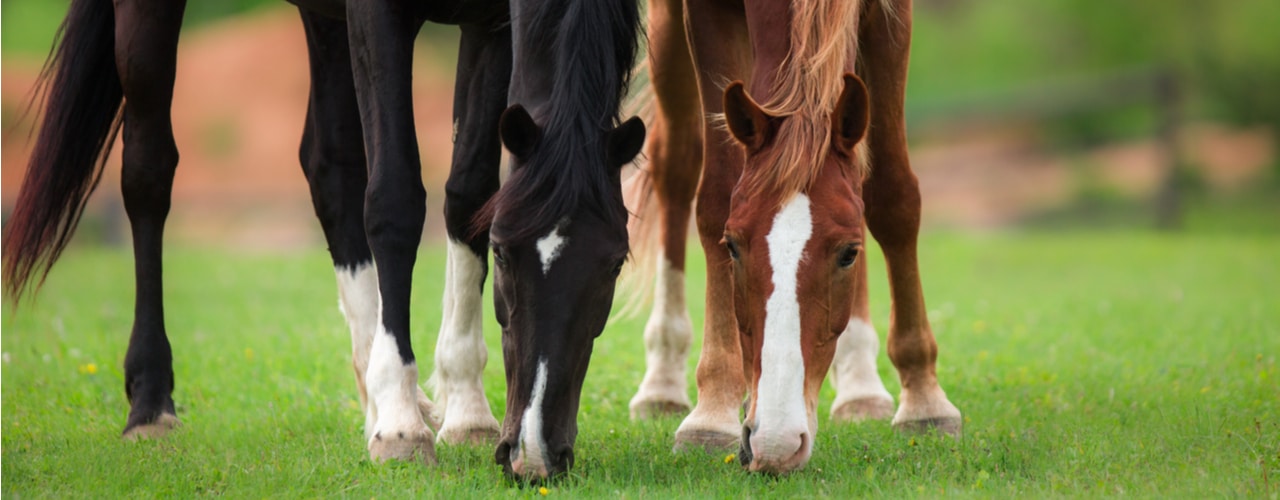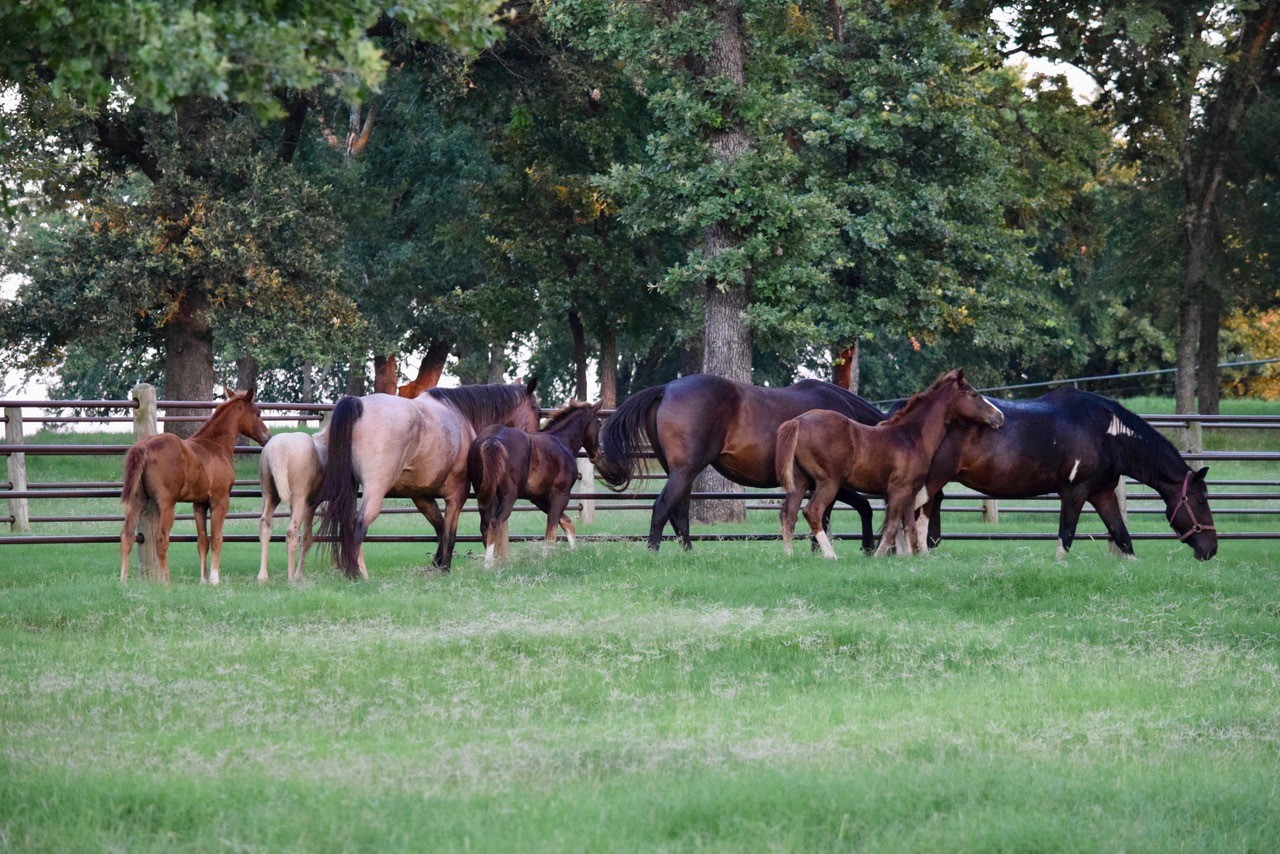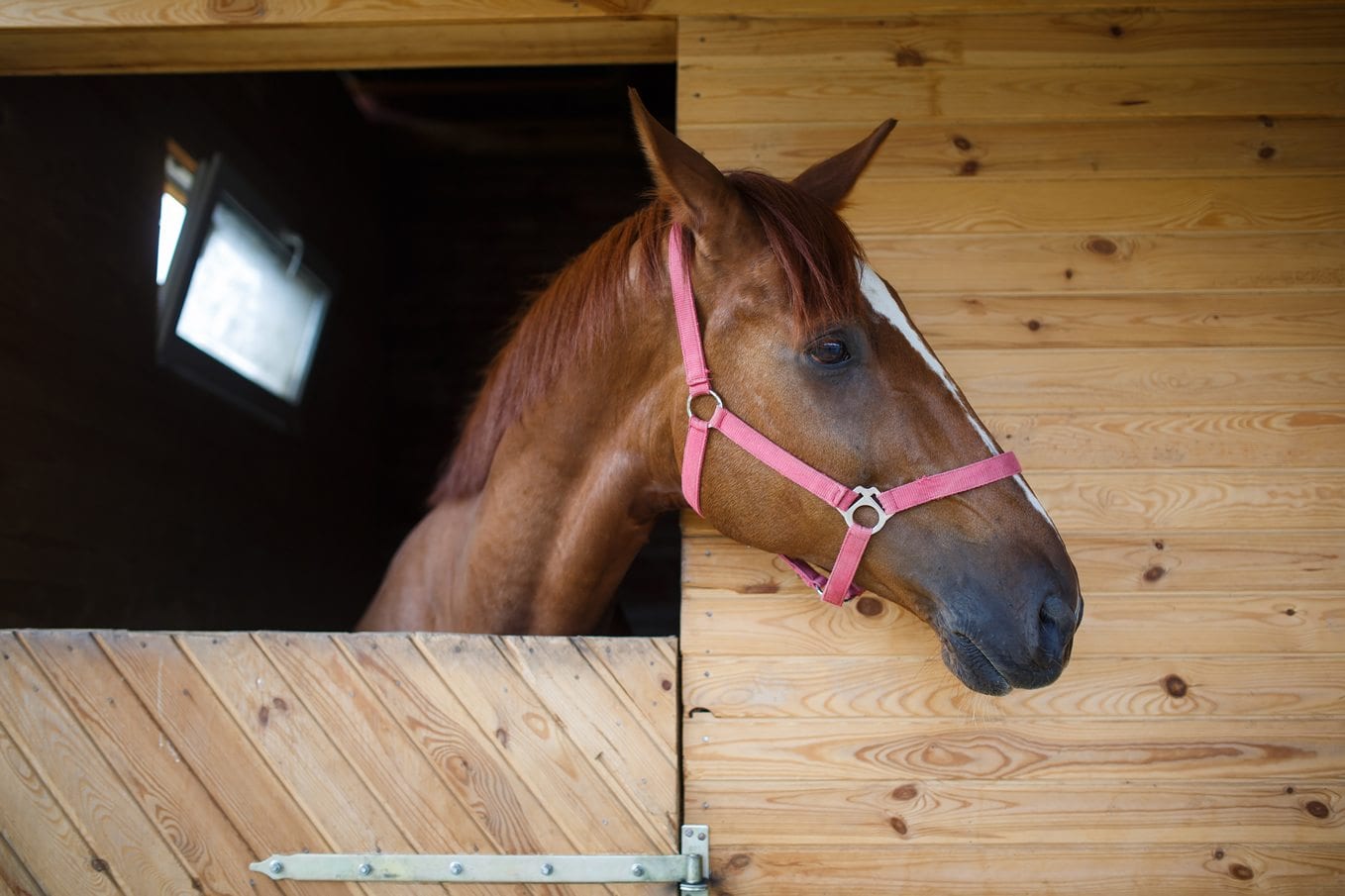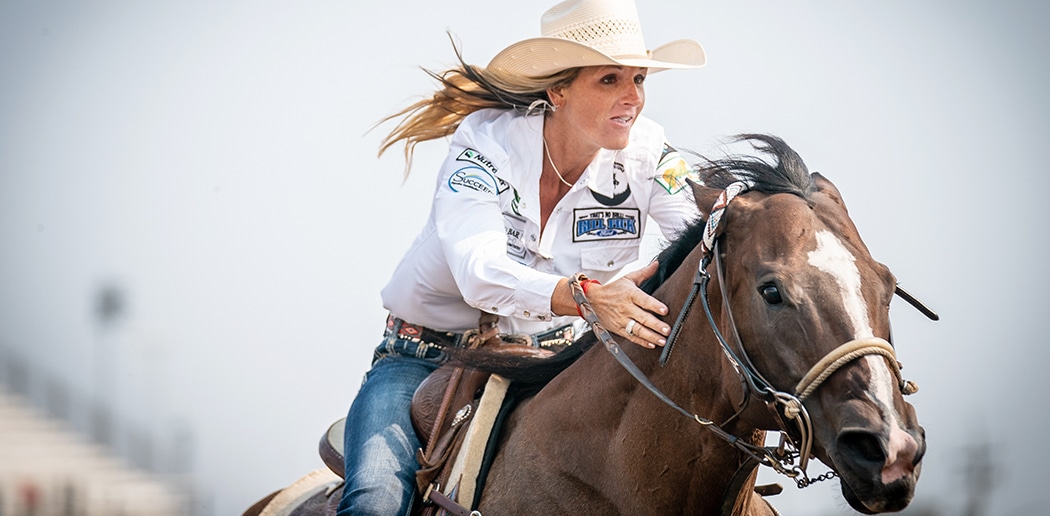Deciding what to feed our horses is one of the most fundamental issues that horse owners must address daily. Proper nutrition is vital for overall health, and critical nutrients play an essential role in your equine partner’s condition and performance. But evaluating the countless varieties of feed options available today to formulate the best diet for your horse can be challenging.
Horses in the wild evolved to eat a slow and steady diet of forage. Domestic horses, especially when used in performance, need a diet that supports a greater variety of energy and nutrient requirements. But the digestive system of the modern-day performance horse is no different than that of its wild ancestors. When current equine feeding practices stray from the ideal diet that nature intended, how can you ensure that your horse is receiving the nutrition he needs to thrive without causing digestive problems?
Here’s what you need to know about the basic principles of the NRC Nutrient Requirements of Horses to help your horse reach its full potential with proper nutrition.
NRC Equine Nutrition Guidelines
The Nutrient Requirements of Horses: Sixth Revised Edition is a trusted resource published by the National Research Council of the National Academies. This reference features guidelines for feeding horses established by a council of equine nutrition experts and backed by peer-reviewed scientific research.
You can purchase the guide here or use their online calculator to learn more about the NRC’s in-depth recommendations. Remember to consult your veterinarian before making any significant changes to your horse’s diet.
The Six Essential Nutrients
Although individual nutritional needs vary, every horse needs a diet that provides adequate amounts of these six essential nutrients, as outlined in the NRC Nutrient Requirements of Horses.
Carbohydrates
Carbohydrates are the primary source of energy in the equine diet. Nonstructural carbohydrates include sugars and starches found in grain concentrates, while forages consist of fibrous structural carbohydrates that horses digest by fermentation in their hindgut (Pagan, 1998).
The equine digestive system is designed to obtain energy from a roughage-based diet, and free-choice forage is the ideal foundation for any feeding program. When free-choice feeding is impractical, horses should receive at least 1% of their body weight in hay split into multiple meals throughout the day.
Protein
Protein is not a primary energy source for horses, but it is vital for building and maintaining body tissues. Amino acids are the building blocks of protein, and essential amino acids like lysine limit the amount of protein your horse can synthesize for growth and maintenance.
In general, mature horses do well on a diet that contains 8-12% protein, while performance and breeding horses require higher protein levels. Growing youngsters need 12-18% crude protein in their diet to support proper development. You can find high levels of vegetable-based protein in alfalfa, grass hay, and some grains.
Fats
Nutritionists have not established fatty acid requirements for horses, but research suggests that horses can tolerate high levels of dietary fat. This nutrient is an excellent energy source for horses, as added fat increases energy density without drastically increasing ration size.
Good sources of fats include grasses, grains, flaxseed, oils, and powdered or pelletized supplements. However, be careful to introduce fats to your horse’s diet slowly.
Minerals
Minerals are inorganic elements that are essential for bodily functions. Macrominerals are minerals that horses need to consume in large amounts. These minerals include sodium, chloride, calcium, phosphorus, potassium, and sulfur.
Horses also need trace amounts of microminerals like cobalt, copper, iodine, iron, manganese, selenium, and zinc. Feeding a mineral supplement or ration balancer that follows NRC guidelines is the best way to ensure that your horse receives the correct amount and ratios of minerals in his diet.
Vitamins
Horses can produce some water-soluble vitamins and store fat-soluble vitamins in their body. But, horses have to get specific essential vitamins from their diet that their body can’t make.
Essential vitamins like vitamin E are abundant in green grass but scarce in hay. If your horse doesn’t have access to pasture, he may need vitamin supplementation. Horses may also require additional supplementation to support specific health needs. (Secombe, 2012.)
Water
Clean water should always be readily available for your horse as dehydration causes issues much faster than lacking other nutrients. Horses often suffer from dehydration during cold seasons, so remember to provide a heated water source when the temperature drops.
Evaluate Your Horse’s Nutritional Needs
Proper nutrition impacts your horse’s health, behavior, and performance. While evaluating your horse’s diet is challenging, tailoring your feeding program to meet your horse’s specific needs is a vital aspect of good horse management. Here are three factors that influence your horse’s nutritional needs.
Horse Factors
NRC nutrient requirements for horses change depending on various physical factors like age, breed, and body type. Horses used for breeding and competition will have higher energy and nutrient requirements.
In addition to increased calorie requirements, performance horses also face nutritional challenges due to limited turnout, frequent travel, and emotional demands. These challenges can also make it difficult to maintain a healthy digestive system.
Dietary Factors
Your horse’s physical characteristics will determine how much he needs in the way of carbohydrates, fats, proteins, minerals, and vitamins. The feedstuffs that compose your horse’s diet have different types and amounts of nutrients, so reading labels and performing forage analyses is vital for evaluation.
To get the most out of a well-balanced diet, horses also have to absorb nutrients from their food efficiently. Optimal nutrient absorption is only possible with a healthy gut, so supporting your horse’s gi tract health is just as important as balancing his diet (Julliand and Grimm, 2017).
Feeding Factors
To support optimal digestive health, you need to evaluate feeding factors related to how you feed, not just what you feed. Timing, location, and meal size are all critical aspects of your feeding program.
Allowing horses to graze constantly is not realistic in all situations. In those cases, owners can mimic natural feeding as much as possible by prioritizing forage and dividing feed into small meals throughout the day in a quiet environment, enabling horses to digest their food efficiently.
Adjusting Your Feed Program
Once you’ve determined the factors that influence your horse’s nutritional needs, you can adjust your feeding program to better support its overall health with proper nutrition. Owners should aim to feed a forage-based diet that meets their horses’ needs without negatively impacting digestive health.
Focus on what you can control to mitigate the nutritional challenges that modern horse husbandry practices can introduce. Additional digestive support that aids nutrient absorption and promotes healthy gut function can help promote optimal nutrition when you have to compromise.
How SUCCEED Supports Optimal Nutrition
SUCCEED Digestive Conditioning Program helps maintain a healthy digestive system amid nutritional challenges common in modern performance horses. Some horses ingest the correct amount of nutrients from a balanced diet but can’t absorb them efficiently due to these challenges.
SUCCEED supports good nutrient absorption to help horses get the most out of their feed. This digestive support can help horses maintain a healthy body condition and optimize performance when it’s difficult to follow a natural feeding program.
Ready to Try SUCCEED?
If you’re a horse owner in the U.S. who wants to get the best nutrition out of their feeding program, take the SUCCEED Challenge to try SUCCEED for 60-days.
Outside of the U.S. or already a SUCCEED user? Find out where you can purchase SUCCEED.
References
National Research Council, 2007. Nutrient requirements of horses: 6th ed. Washington, D.C.: The National Academies Press.
Pagan, J.D., 1998. ‘Nutrient digestibility in horses’ in Pagan, J.D. ed., Advances in equine nutrition: 3rd ed. Nottingham: Nottingham University Press, pp.77-83.
Secombe, C.J., & Lester, G.D., 2012. The role of diet in the prevention and management of several equine diseases. Anim. Feed Sci. ech., 173(1-2), 86-101.
Julliand, V., & Grimm, P., 2017. The impact of diet on the hindgut microbiome. J. Equine Vet. Sci., 52, 23-28.




